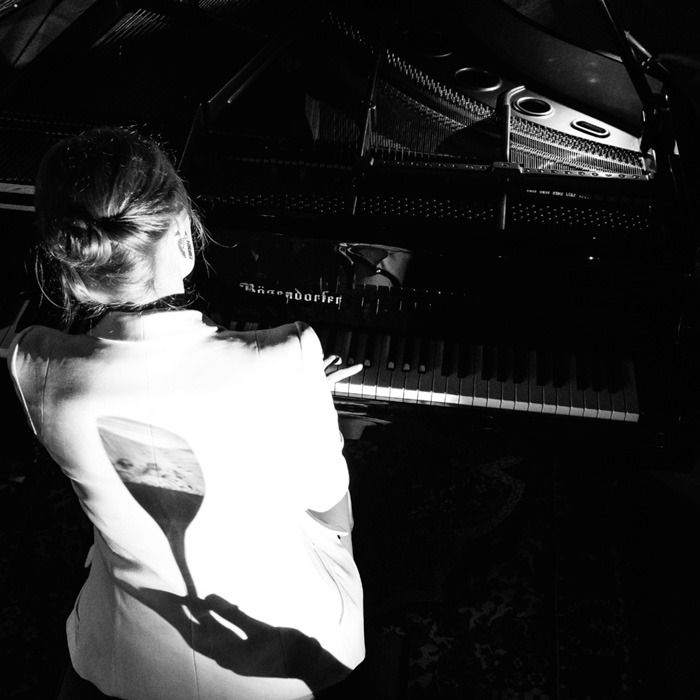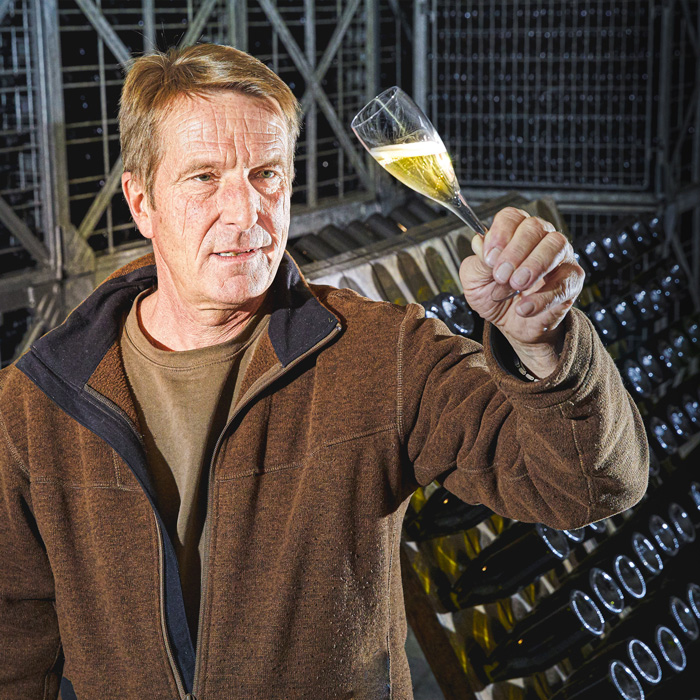Le brut du valais
In thirty years, the “Brut Millésimé” 100% AOC Valais has become a bench mark of quality and passion.
It was towards the end of the eighties when Jacques Germanier, pioneered of the Swiss wine industry, launched a sparkling Chardonnay- The Brut du Valais.
In order to develop the Brut, Jaques Germanier built 800m2 of tunnels which were excavated into the Valais mountain rock to ensure a perfect year round temperature.
This sparkling was created around the standard set by our neighbors in Champagne, who are the custodians of sparkling knowledge. With a century of viticulture know how, the quality of Valais grapes and the positioning of a unique area, this “Blanc de Blanc” is forged with incredible scents and flavors.

Beatrice Berrut
A TENDER SYMPHONY

eye
Light lemon colour, very fine and regular droplets.
Nose
Complex, floral, with a nutty touch and a slight hint of toast.
Palate
Elegant and intensified by a pleasant liveliness. Round, balanced palate with a touch of sweet lime. Long finish, very harmonious, accompanied by a touch of honey.

The traditional method
Pressing
The first step in the production of our sparkling wines the grapes are pressed in whole bunches directly after harvesting.
Due to the variable quality of the must during pressing, only the first 50% is retained to make the Brut.
FIRST FERMENTATION
The must undergoes its first fermentation in tanks which is referred to as alcoholic fermentation. During this process the yeast turns the sugars of the must into alcohol and also produces the desired aromas for the cuvee (base wine).
Second fermentation and lees ageing
A liqueur de tirage (sugar and yeast mixture) is added to the wine before bottling. We extract the cuvee from the tanks and bottle it under crown cap.
The bottles are then placed in wooden slats inside our tunnels to maintain a constant temperature (10°) throughout the year. The bottles remain in the tunnels for a total of 36 months. In its glass housing and through the reaction of the yeasts, sugar is transformed into alcohol and carbon dioxide which gives the Brut its bubbles and foam.
Remuage (Riddling)
Once all the sugar is transformed into alcohol the yeast collects on the walls of the bottle and form a solid deposit. The riddling process is intended to concentrate the yeast deposit in the neck of the bottle. For this, the bottles are placed upside down in riddling racks (pupitres). Riddling is a step that requires a real stroke of hand.
It requires the winemaker to gradually drag the yeast deposit down the neck of the bottle without even the finest of particles defusing back into the wine.
The bottle is turned in varying directions with movements changing precisely between a quarter and a sixteenth of a turn each time. At the same time the inclination of the bottle is gradually increased. Riddling is a precision operation, the linking rotations and how to perform them require the greatest of dexterity.
Disgorging
Once the yeast deposits are collected in the neck, it is needs to be removed from the bottle. The neck is immersed in an iced solution (liquid nitrogen). This creates the formation of an ice cube containing the solid yeast deposit.
When the bottle is opened the deposit is then expelled because of the pressure created during the second fermentation. The addition of the desired sugar (iquor de expedition) and the cork is the last step of winemaking in the traditional method.



